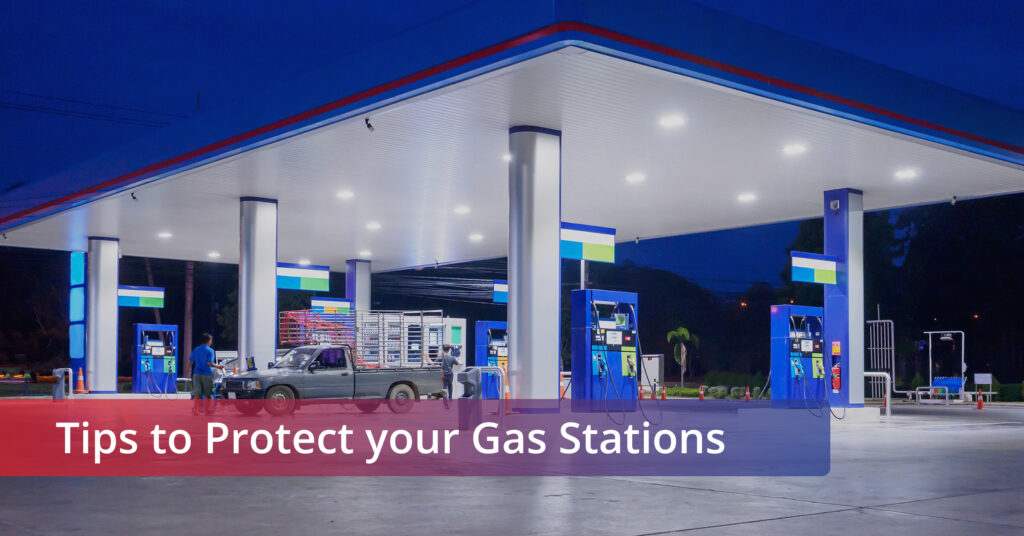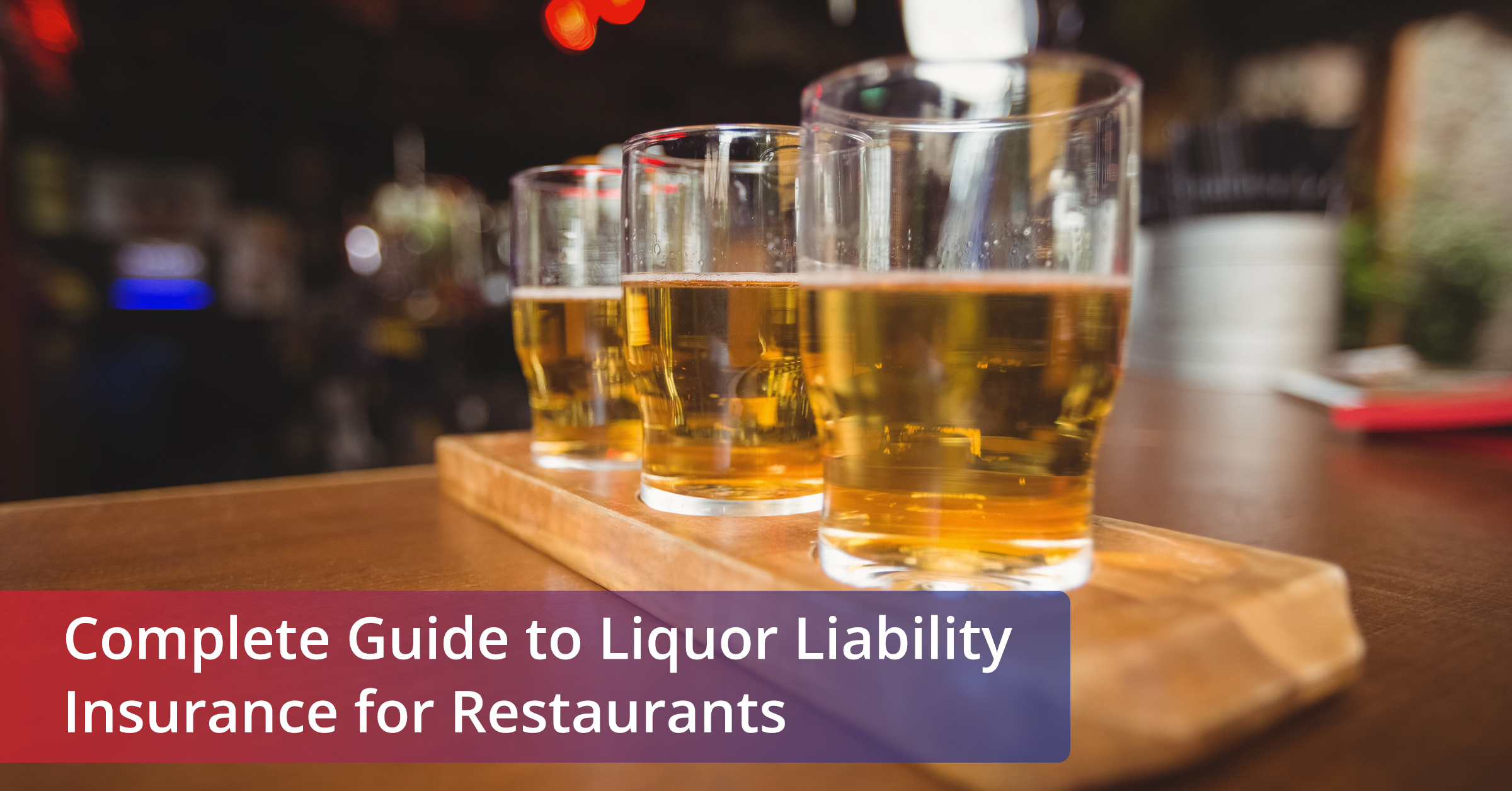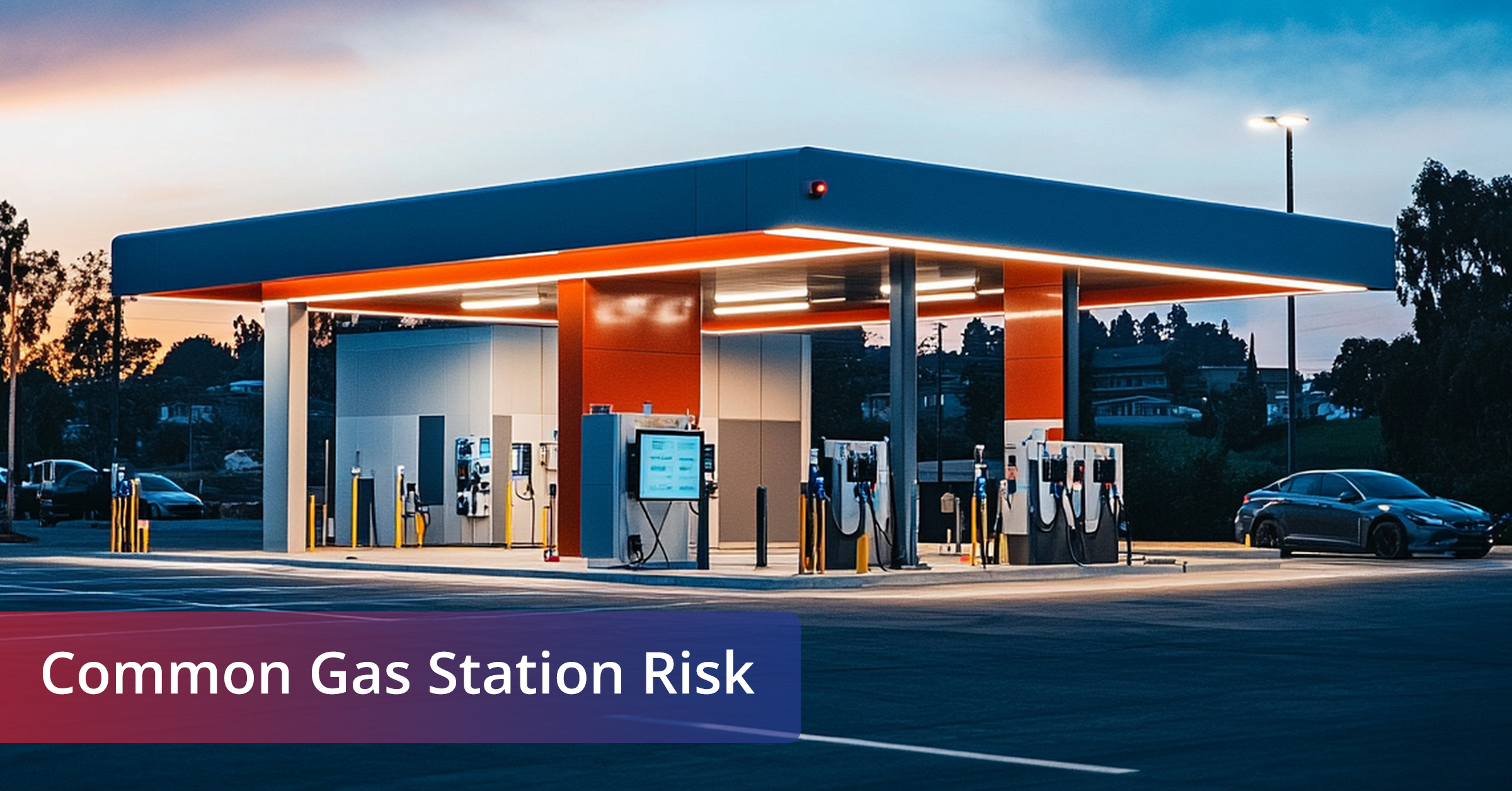Running a gas station business can be lucrative. This blog will cover great tips that will help you protect your gas station business. It may offer financial rewards and personal satisfaction. However, it involves specific risks that require careful management to ensure the safety of customers, employees, and the local community.
Key concerns include the possibility of fires, injuries, and chemical leaks, which may result in costly ramifications. To protect your gas station, patrons, employees, business, and the environment, it is important to follow these comprehensive safety tips:
Check Breakaway Connectors
Start by making sure the breakaway connectors on your pumps are working well. These connectors are important because they prevent pumps from being forcefully pulled off their islands. Drivers often forget to remove the nozzle from their vehicle before leaving the forecourt. In such situations, the breakaway connectors allow the hose to detach from the vehicle in the event of significant pressure or impact.
Inspect Shear Valves
Check the shear valves on your pumps regularly to make sure they work correctly. These valves come into play when a pump is knocked off its island due to force or collision. It basically prevents gasoline from leaking onto the forecourt. If the shear valve doesn’t work or conditions become hazardous, it requires the shutdown of all pumps.
In such a scenario, it is important to promptly activate the main emergency cut-off switch. This gas station safety action is necessary to stop leakage and prevent potential explosions or fires.
Monitor Tank Efficiency
Keep a close eye on your tank’s efficiency by regularly checking supply levels. This ensures customer satisfaction, reduces downtime, and lowers the risk of expensive cleanups. If a loss is detected, promptly involve qualified personnel to identify the cause, assess the scale of the loss, and make necessary repairs. In certain cases, you may have to carry out environmental abatement for gas station safety.
Embrace Preventive Maintenance
Prioritize preventive maintenance by conducting routine inspections of tanks, bores, and piping. This proactive approach helps avoid unnecessary expenses in the long run. Regularly examine all equipment and components for signs of wear, cracks, or damage, including checking pumps for operational issues and miscalibrations.
Adhering to a structured schedule of preventive maintenance significantly reduces annual repair costs and minimizes losses due to downtime and dissatisfied customers.
Prioritize Code Compliance
Keep yourself informed about state, local, and federal regulations, including-
- EPA requirements
- Storage tank operator training
- Air quality regulations
- Fire codes
- State water board regulations
- Building and electrical codes
- Worker safety training
As codes and regulations frequently change, staying up-to-date is essential to prevent costly citations and penalties. This is especially important as surprise inspections can occur at any time.
Make Safety a Priority
Protect your gas station by promoting a safety culture by making sure
- Patrons turn off their cars during refueling.
- Patrons are not entering their vehicles while refueling to prevent the creation of a static electrical charge that could ignite leaks and vapors.
- Employees avoid smoking and using matches or lighters on the premises.
- Display warnings and precautions on every island
- Provide your staff with full training in incident prevention and management.
Secure Indoor and Outdoor Areas
Keep a watchful eye on all activities at the pump station, including-
- Fuel delivery area
- Parking lot
- Cash counter
- Store and repair bays
Consider investing in high-quality indoor and outdoor lighting and security cameras to discourage potential criminals. Well-lit areas and security cameras improve visibility. This allows your staff to address dangerous conditions promptly.
Protect Against Cyber Attacks
In today’s digital world, it’s important to keep your gas station’s vital systems safe. These include back-office and point-of-sale systems, tank-gauge payment systems, cloud banking systems, and fleet management systems. Taking steps to secure your infrastructure is essential for preventing unauthorized access and protecting sensitive data. Key steps to take:
- Back-office and Point-of-Sale Systems: Use strong security measures. Keep software up to date for added protection. Limit access to authorized personnel.
- Tank-Gauge Payment Systems: Use encryption for secure transactions. Regularly check for vulnerabilities. Monitor for any unusual activities.
- Cloud Banking Systems: Choose secure cloud service providers. Add extra layers of security, like multi-factor authentication. Educate staff about safe online practices.
- Fleet Management Systems: Use secure channels for data transfer. Ensure vehicle tracking systems have updated security features. Have protocols for reporting and addressing security issues.
- General Infrastructure: Invest in firewalls and antivirus software. Train employees regularly on security. Work with cybersecurity experts to assess and improve overall system security.
By following these steps, you build a strong defense against cyber threats. This keeps your operations secure and maintains the trust of your customers and the community.
Be Prepared for Natural Disasters
With the increasing occurrence of natural disasters like earthquakes, hurricanes, tornados, wildfires, and tropical storms, proactive preparation is essential. When alerted to adverse weather conditions, follow these safety tips-
- Secure pumps to their islands
- Ensure tight securing of tank fill caps to prevent leakage.
- Print out vital electronic information and receipts necessary for restoring your station after the disaster has passed.
- Power down your equipment and secure station items prone to blowing away, causing potential harm or loss of life to pedestrians.
Before resuming operations, engage professionals to check your tanks and other equipment, install new filters, check for underground leaks, and repair or replace any damaged components.
Partner with a Full-Service Provider
Create a partnership with a team that has experience, offers cost-effective solutions, provides quality service, and responds quickly. This partnership should cover
- Urgent repairs
- Preventive maintenance
- Testing and compliance
- end-to-end solutions
All these are to keep your gas station running smoothly. A reliable business partner is essential to avoid potential issues and keep your station a valuable resource for the local community.
Gas Station Insurance
This is one of the most important gas station tips. Gas Station Insurance protects your business from various risks like property damage, injuries, and theft. It covers your property, inventory, and staff, providing financial security. Options include
- Package Insurance
- Equipment Breakdown Insurance
- Pollution Liability Insurance
- Employment Practices Liability Insurance (EPLI)
Exceed Insurance provides Gas Station Insurance to keep your business financially secure. It covers property and liability claims, including pumps, canopy, and signs. General liability coverage protects against claims from accidents on your premises. Liquor liability coverage settles claims when customers under the influence harm others.
Commercial crime coverage pays for losses in theft, vandalism, or employee dishonesty. Business income coverage helps during temporary closures, covering losses and bills. Get personalized quotes to meet your gas station’s specific needs, ensuring financial protection in emergencies, whether you’re operating or planning one. We have also written a blog on Importance of Pollution liability Insurance for Gas Stations, check it out.
Conclusion
The successful management of a gas station involves a comprehensive approach that addresses concerns like safety, compliance, maintenance, and disaster preparedness. By implementing these gas station tips, you can protect your gas station while creating a secure and thriving environment for your business, as well as contributing positively to the well-being of your patrons and community. If you’re planning to open a gas station, checkout our blog – The Complete Guide to Open a Gas Station.
FAQs
Why is Gas Station Insurance important for business?
Gas Station Insurance covers property and liability, safeguarding against damage, injuries, and theft.
How can Exceed Insurance help with gas station coverage?
Exceed Insurance offers personalized coverage for property, liability, and specific needs, ensuring financial security.
How can gas station owners promote safety?
Ensure patrons turn off cars during refueling, train staff, prevent static charges for safety, and follow the standard Gas station safety tips.






